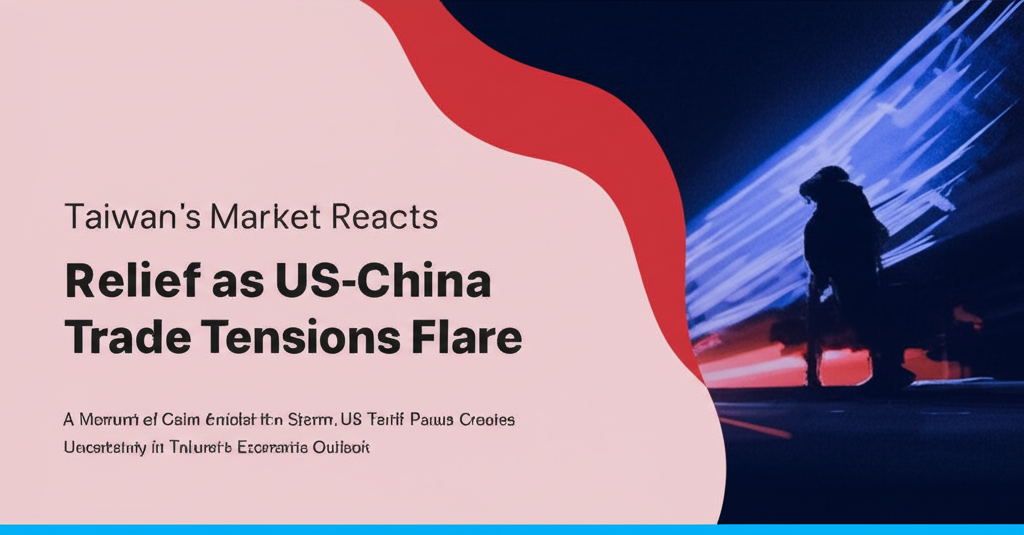Taiwan's Market Reacts: Relief as US-China Trade Tensions Flare
A Moment of Calm Amidst the Storm: US Tariff Pause Creates Uncertainty in Taiwan's Economic Outlook.

The recent announcement by US President Donald Trump to temporarily halt tariffs on most nations has sent ripples of relief through global markets, including in Taiwan. However, this pause has been juxtaposed with an escalation in the ongoing trade war with China, creating a complex and potentially volatile economic environment for the island nation.
Following days of market fluctuations, stock markets in the US and across Asia experienced significant gains in response to Trump's decision to delay tariff increases for a period of 90 days. The move offered a much-needed respite for investors globally.
Simultaneously, President Trump increased tariffs on China to 125 percent, citing a "lack of respect." This action, while seemingly contradictory, highlights the delicate balance of power and the aggressive tactics at play in the US-China trade conflict.
Beijing responded with retaliatory tariffs of 84 percent on US imports, effective immediately. This move underscores the escalating nature of the conflict between the world's two largest economies, and the potential ramifications for economies heavily reliant on international trade, such as Taiwan.
President Trump defended his actions, stating the need for "flexibility" in trade negotiations. He noted his awareness of the fluctuating US bond market, suggesting his decisions were influenced by economic indicators.
Trump also expressed optimism about securing trade deals with all countries, including China, despite China's current reluctance to roll back its own retaliatory tariffs on US goods. He predicted deals would be reached, although he expressed a view that Chinese leaders are still figuring out how to proceed.
He suggested that further increases in tariffs on China were unlikely.
Reports suggest that Beijing is considering additional economic stimulus measures to address the economic challenges, particularly those exacerbated by the trade war. The long-term impact of these policy decisions is still evolving.
Wall Street stocks demonstrated a strong positive reaction to President Trump's announcement. The S&P 500 surged, indicating a recovery after a period of losses. This positive sentiment is likely to be felt across other markets, but the underlying uncertainties of the trade war persist, requiring continued vigilance for Taiwan's economic actors.
Other Versions
El mercado taiwanés reacciona: Alivio ante el recrudecimiento de las tensiones comerciales entre EE.UU. y China
Le marché taïwanais réagit : Soulagement face aux tensions commerciales entre les Etats-Unis et la Chine
Pasar Taiwan Bereaksi: Lega karena Ketegangan Perdagangan AS-Tiongkok Berkobar
Il mercato di Taiwan reagisce: Sollievo per le tensioni commerciali tra USA e Cina
台湾市場の反応:米中貿易摩擦の激化に伴う安堵感
대만 시장이 반응합니다: 미-중 무역 긴장이 고조되면서 안도하는 분위기
Reaksyon ng Pamilihan ng Taiwan: Kaginhawaan Habang Nag-aalburoto ang Tensyon sa Kalakalan ng US-China
Тайваньский рынок реагирует: Облегчение на фоне обострения торговой напряженности между США и Китаем
ตลาดไต้หวันตอบสนอง: โล่งอกเมื่อความตึงเครียดทางการค้าระหว่างสหรัฐฯ-จีนปะทุ
Phản ứng thị trường Đài Loan: Nhẹ nhõm khi căng thẳng thương mại Mỹ - Trung leo thang
